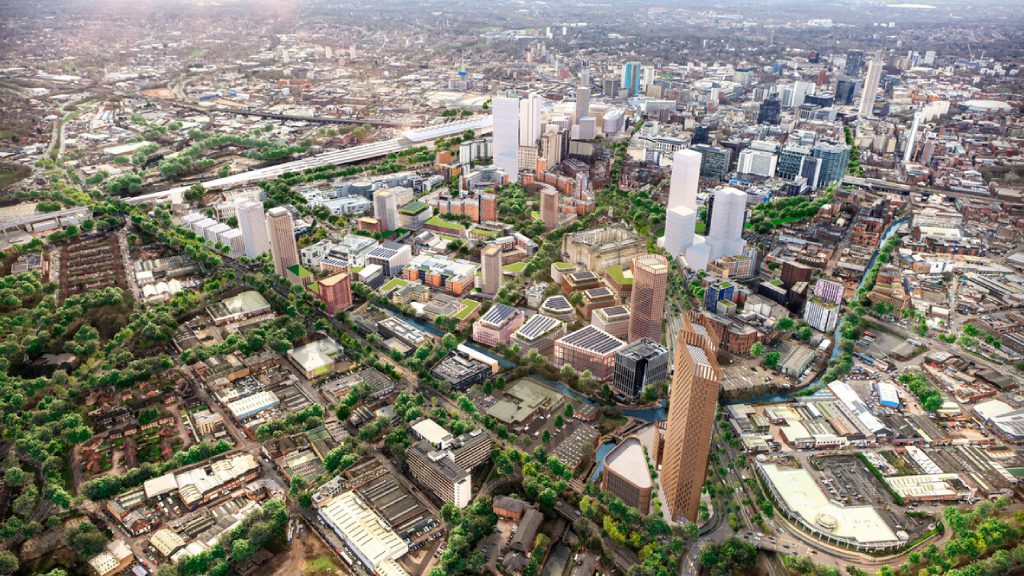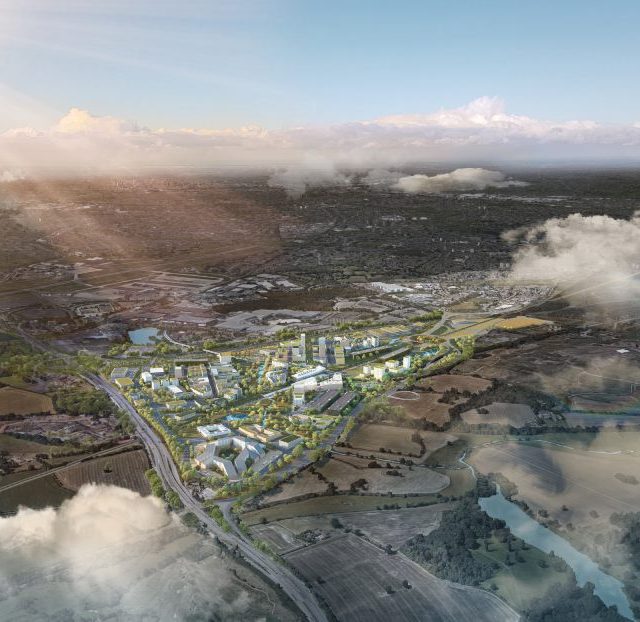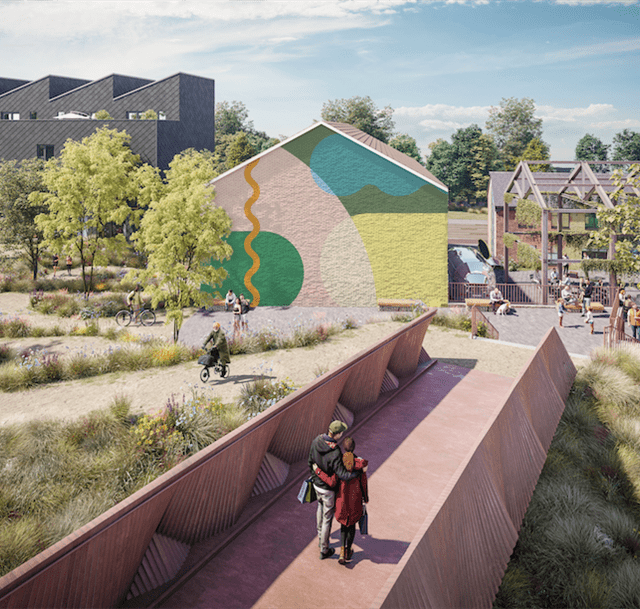Delivering Net Zero in the West Midlands

Something increasingly held in common is the shared ownership and ambition for the transition to net zero, exemplified at the heart of regional development areas such as Arden Cross in Solihull and Birmingham Innovation Quarter. The region is also exemplifying new public-private delivery models in this space, such as Coventry Council’s appointment of E.ON as its long-term Strategic Energy Partner to assist in its ambition of significantly reducing citywide carbon emissions.
The West Midlands has a fantastic opportunity to be at the forefront of net-zero developments in 2024 and beyond, and we have some great examples of projects and delivery models already in place. The need for systems-level change and acceleration towards net-zero goals is ever more apparent, with just 26 years until the UK’s 2050 target and 17 to the regional target of 2041.
It’s challenging but the West Midlands is well equipped, already applying a “place-based” approach to net zero through plans for major growth areas such as the designated Levelling Up Zones.
At heart, this is about accelerating the energy transition through a whole-system approach, applied at the regional scale, something explored in ‘A Place-Based Approach to Net-Zero’ produced by Mott MacDonald and the Net-Zero Infrastructure Industry Coalition.

This report identified four key pillars to the place-based approach – Powers, Partnerships, (data) Platforms and People (skills), which act as a helpful lens through which to view the region’s progress and potential on the route to net zero.
1. Powers
The trailblazing devolution deal includes regional energy powers and Energy Capital are already delivering regional benefits through their research, delivery and investment programmes. As a Net-Zero Pathfinder region, much of the learning around the new institutional governance models needed to enable the rapid and smart energy transition has come from the West Midlands. 2024 is a pivotal year for the region as these powers and investment streams come online, creating the momentum to deliver the change needed.
2. Partnerships
This is something the region already excels at, with excellent relationships between central, regional and local government organisations, across the wider public sector and with the private sector, academia and third sector.
From a business perspective, more and more organisations are taking a Science-Based Targets approach to reducing their corporate emissions, with knowledge sharing taking place across numerous local networks, such as the West Midlands Growth Company’s 2022 Cross-Sector Initiative around Sustainability and Climate Change.
Further collaboration across supply chains and projects can be driven by the application of the recently updated standard on Carbon Management, PAS 2080, co-authored by Mott MacDonald. Much of the emphasis of the updated standard is on collaboration, and it provides a robust framework for highlighting opportunity – something we’d like to see more widely applied across the Midlands.
3. Data platforms
Energy Capital’s RESO project demonstrated the depth of relevant data available to inform scenario planning and decision making around energy interventions. The challenge is not so much the need for more data, but the need to bring it together in a meaningful way that contributes to a shared understanding of opportunities, blockers, priorities and trade-offs. Evidence is so important for credibility in this space, particularly in building consensus around major investment decisions, and the ultimate goal should be a regional “Digital Twin” – a digital model across systems, fed by live sensor data from which effective scenario modelling can be undertaken as well as smart energy management and optimisation.
On a more granular level, our own Carbon Portal enables measurement and assessment of carbon impacts on buildings and infrastructure projects, enabling developers and contractors to demonstrate compliance with increasingly stringent carbon targets.

4. People and skills
There remains a challenge in the upskilling and reskilling of the regional workforce to expand the green economy. Whilst this is a national challenge, it’s particularly acute in the West Midlands, with the UK 2070 report highlighting the high proportion of regional jobs that are “high carbon”.
In terms of advanced manufacturing, the Gigafactory proposals are often in the news, but we see a key role for the further education sector in developing the skills and workforce for the extensive and rapidly growing building retrofit market – University College Birmingham’s recently completed sustainable construction centre is an excellent example of the changing focus.
So how well is the West Midlands equipped to face the transition to net zero?
From the rapid review above it’s clear that many of the regional pieces seem to be in place, but recent disappointing outcomes from COP 28 mean there’s a space for regions to take a leadership role in accelerating the transition – creating competitive advantages on a global market for investment, businesses and talent. 2024 is set to be a key year in this regard, with the West Midlands playing its part in delivering the change needed.
Meet the West Midlands
Luke will be speaking at the West Midlands Pavilion at our ‘Delivering Low Carbon Infrastructure at Scale and Pace’ interactive panel session. Come along to uncover invaluable insights into the West Midlands, featuring panellists also from E.ON, Coventry City Council, and Energy Capital.


